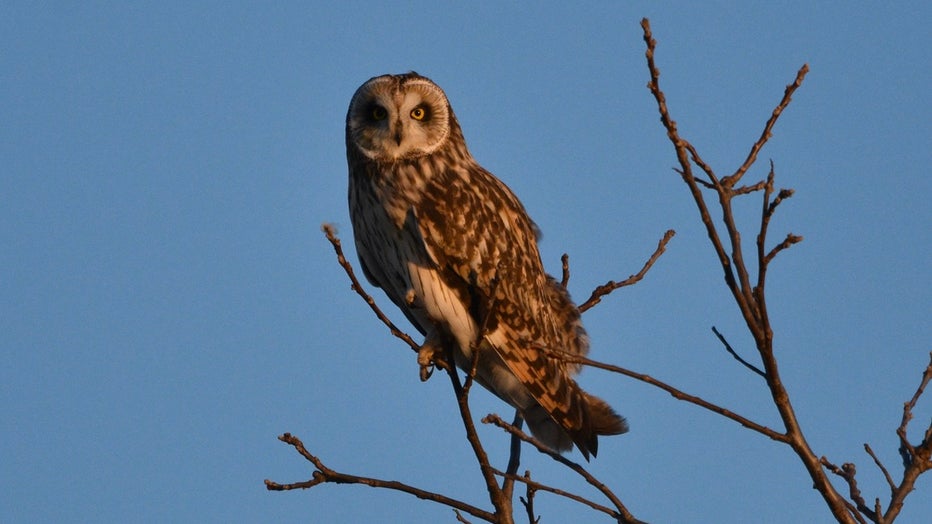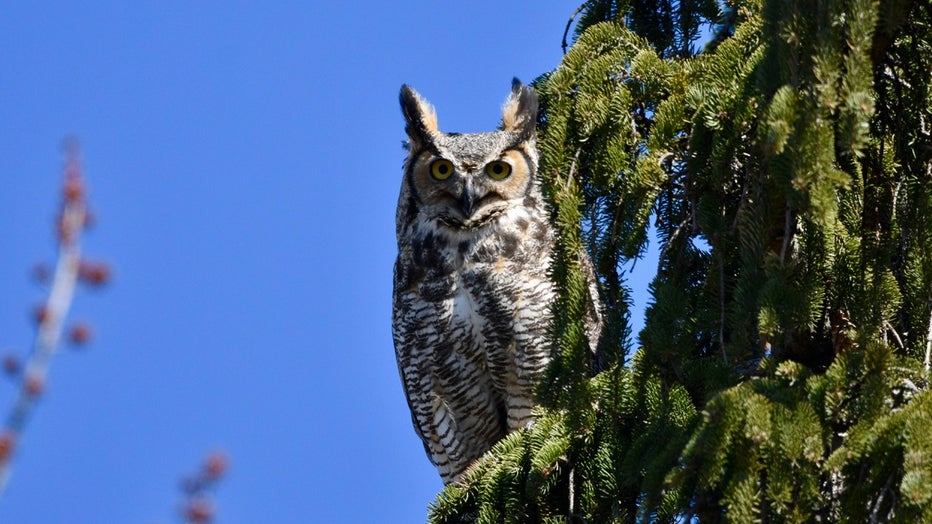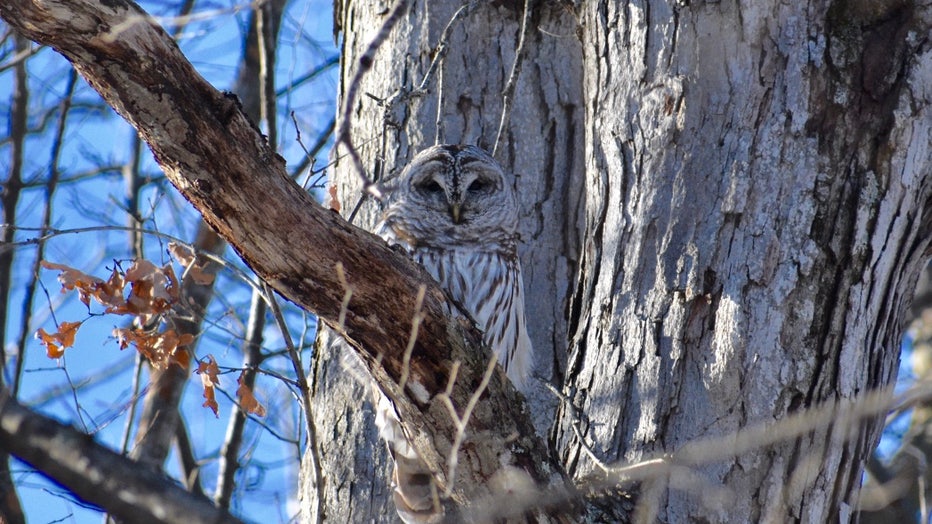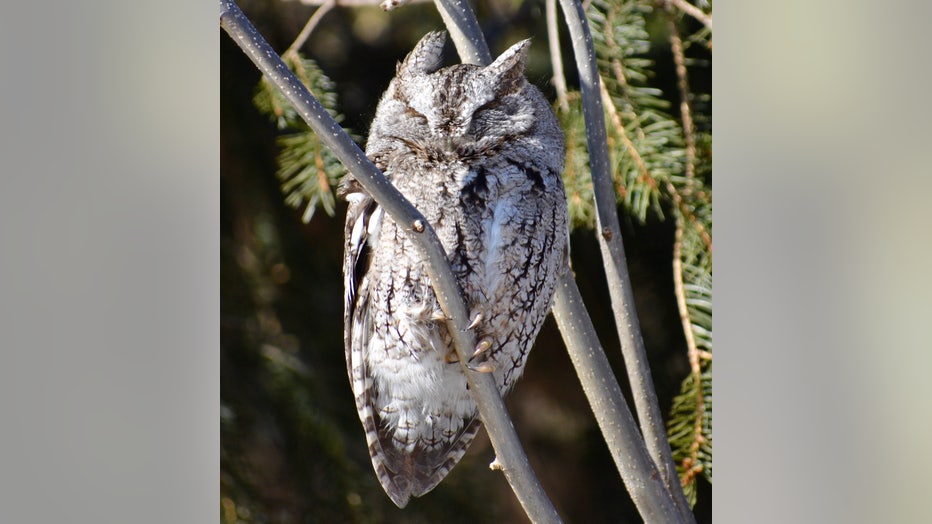Wisconsin owls in winter; prime time for watching, they need your help
MILWAUKEE - As we enter winter in Wisconsin you might think there isn't much to do in nature, but you couldn't be more mistaken. December through March is an incredible time to hear and experience owls from a safe distance.
Winter is when owls nest and begin raising their young. Southeast Wisconsin is unique in how many different species of owl we can support. Seven different species ranging from forests to wetlands call this section of the state home. Once the trees drop their leaves it can still be hard to spot them, but it doesn't mean they're not in your neighborhood.

Short-eared Owl near Lake Winnebago taken by Eric Manges
This is important to remember just because you can't see them it doesn't mean they're not using your yard or neighborhood as habitat. That's why it's so important to not use rat poisons. Lindsey Obermeier is the Raptor Program director at the Schlitz Audubon and points out why rat poison is so dangerous for owls.
"It's not killing the rodent immediately, it slows them down, and our predators such as owls pick them off and consume them," Obermeier said.
RELATED: Help save Wisconsin's owls
Unintentionally rat poison then makes the owls sick and can often lead to death if not treated. Along with habitat loss, rodenticides or rat poisons are a key reason for owl deaths. A single owl family can consume hundreds of mice and rats in a year and without them, you'll have to set even more traps up in your home. Live traps are the most responsible way to prevent harming owls in the long run.

Great Horned Owl in Milwaukee County taken by Eric Manges
If you're already not using rat poison in your home or business you're already helping this species, but the next best thing is to give them plenty of habitats. Species that dwell in forest environments such as Great Horned Owls, Barred Owls, and Screech Owls need forests with old trees to use as homes and shelters.
"It gives them plenty of cavities to nest in," added Obermeier.
Letting dead trees stand and removing invasive species on your property can greatly improve the biodiversity and thus the habitat for these birds.

Barred Owl in Waukesha County taken by Eric Manges
Some species such as Short-eared Owls need prairie and wetlands and by protecting these increasingly rare habitats you're ensuring these species have a place to feed.
SIGN UP TODAY: Get daily headlines, breaking news emails from FOX6 News

Screech Owl in Milwaukee County taken by Eric Manges
Winter is also a key time for Snowy Owls to come down from the Arctic. Every little bit helps this species and if you are lucky enough to see an owl make sure you give it plenty of space so that others can enjoy them for years to come.

